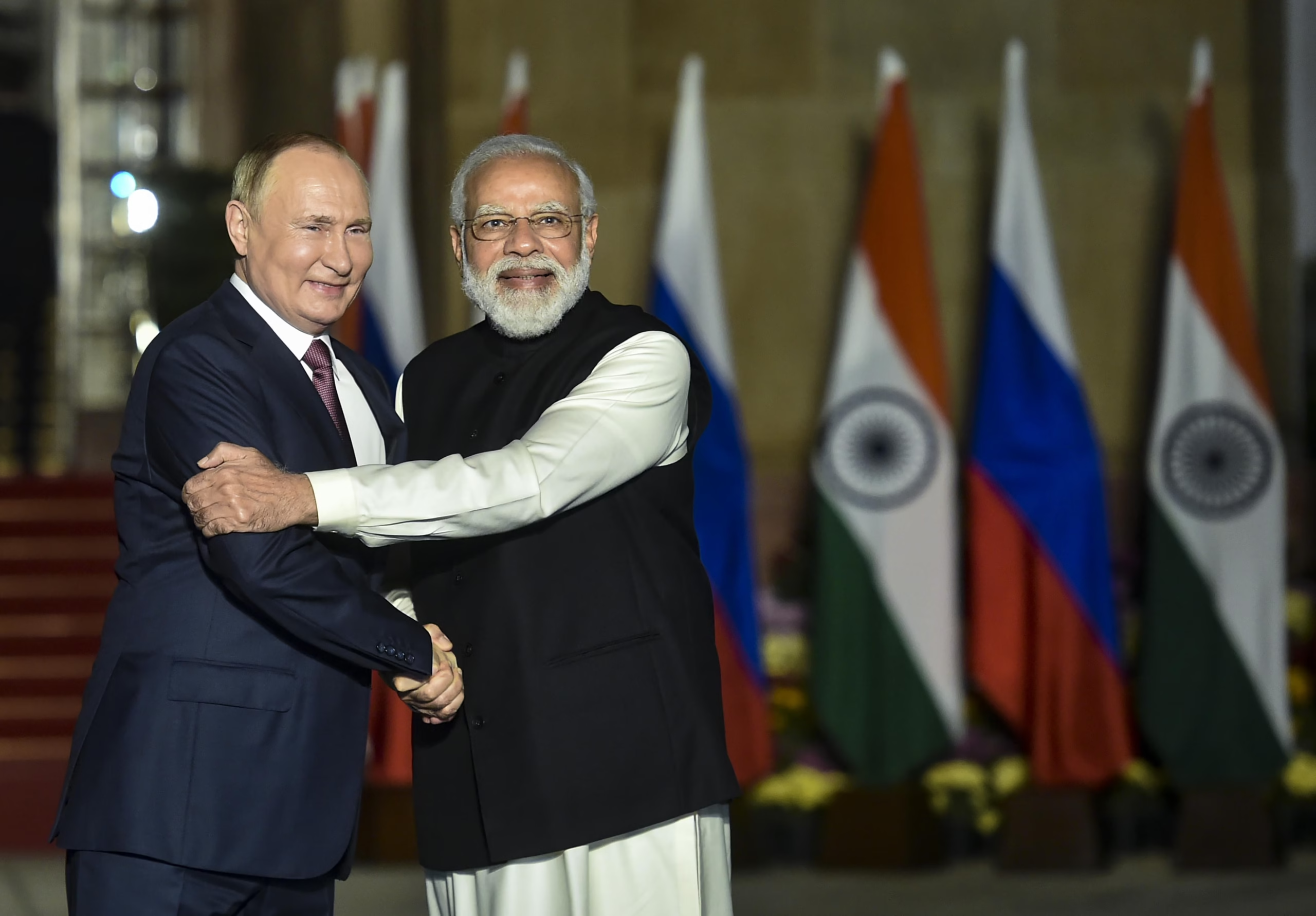
Indian Prime Minister Narendra Modi is set to meet Russian President Vladimir Putin today in Tianjin, China, on the sidelines of the Shanghai Cooperation Organisation (SCO) summit. The high-profile meeting comes amid intensifying US pressure on India over its continued Russian oil purchases, which has led Washington to impose targeted tariffs on Indian goods.
This meeting is being closely watched by global analysts, as it signals India’s attempt to balance strategic partnerships while maintaining its energy security and foreign policy autonomy. With US-India trade tensions rising, the discussions between Modi and Putin are expected to focus on energy cooperation, regional stability, and bilateral economic relations.
Strategic Timing and Context
The Tianjin summit provides a unique opportunity for Modi and Putin to engage in face-to-face diplomacy, especially at a time when geopolitical tensions are high. The US has been increasingly vocal about India’s crude oil imports from Russia, citing sanctions and urging New Delhi to reduce purchases.
Despite this pressure, India has maintained that it must secure affordable energy to sustain its growing economy. Prime Minister Modi’s meeting with Putin underscores India’s commitment to strategic autonomy, showing that New Delhi will navigate global pressures while protecting its national interests.
Energy Security and Russian Oil
Energy is expected to dominate discussions in Tianjin. India remains one of the largest buyers of Russian crude, and the discounted oil supplies help meet the country’s industrial and domestic energy needs. Officials from both countries are likely to discuss ways to streamline payment mechanisms, long-term energy contracts, and diversification of supply chains, ensuring continued stability in bilateral trade.
The US, meanwhile, has expressed concern that Indian purchases of Russian oil could undermine sanctions imposed on Russia due to the ongoing geopolitical conflict in Eastern Europe. Analysts suggest Modi’s diplomatic engagement with Putin is aimed at balancing energy requirements with global diplomatic expectations.
Bilateral and Regional Cooperation
Beyond energy, the Modi-Putin meeting is expected to cover trade, defense, and regional security. India and Russia have long-standing defense and technology partnerships, and this high-level meeting could result in new agreements or reaffirmation of existing strategic initiatives.
Both leaders are likely to discuss regional stability, particularly in Central Asia, the Middle East, and South Asia, as well as multilateral coordination through the SCO framework. This demonstrates India’s active role in shaping regional geopolitics while strengthening ties with key global partners.
US-India Trade Tensions
The backdrop of the US pressure over Russian oil adds a layer of complexity to the meeting. Washington has imposed tariffs on certain Indian exports, signaling displeasure with New Delhi’s stance on Russian energy. Indian officials, however, argue that these actions are unilateral and unfair, emphasizing India’s need for diversified energy sources and economic sovereignty.
The Tianjin discussions could serve as a platform for India to clarify its position on energy imports, economic priorities, and global trade commitments, while also reassuring allies about its commitment to multilateral frameworks and international diplomacy.
Global Implications
The Modi-Putin meeting in Tianjin will have significant global economic and geopolitical implications. Strengthened India-Russia energy ties may influence global oil markets, trade flows, and strategic alliances. It may also prompt the US and other Western nations to reassess their approach toward India, balancing pressure with the country’s growing global importance.
Analysts suggest that India is signaling to the world that it will pursue a multi-aligned foreign policy, taking into account energy security, regional stability, and economic growth without compromising on sovereignty.
Conclusion
As Prime Minister Modi meets President Putin in Tianjin today, all eyes are on the outcomes of their discussions. From energy security and trade cooperation to regional stability and global diplomacy, the summit promises to reinforce India-Russia ties while navigating the pressures of US sanctions and tariffs.
This meeting highlights India’s strategic balancing act: securing national interests, maintaining robust international partnerships, and asserting its position on the global stage. The developments in Tianjin will be closely monitored by policymakers, economists, and the media worldwide, as they may reshape energy strategies, trade dynamics, and diplomatic relations in the months ahead.



